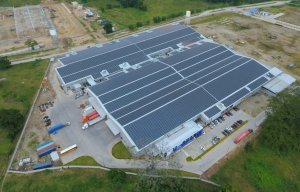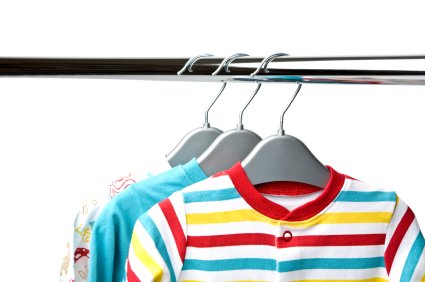
Major investment in Central American spinning
Honduras, like Mexico, benefits from duty-free and quota-free access to the US market under a free trade agreement.

16th October 2017
Knitting Industry
|
Mexican textile and apparel exporters could lose a substantial share of the US market if Donald Trump fulfils his pledge to renegotiate or terminate the North American Free Trade Agreement (Nafta). Under the agreement, Mexican textiles and apparel are allowed to enter the USA duty-free and quota-free, and exports to the USA have soared since the agreement was implemented in January 1994. But Mr Trump has condemned Nafta as being "the worst trade deal ever made" and "very, very bad for our companies and for our workers".
Any loss of share by Mexican exporters would create a gap in the US market which Mr Trump hopes to fill with textiles and apparel made in the USA—thereby creating employment opportunities for American citizens. However, efforts at "reshoring" have met with only limited success in the US textile and apparel industry and Mexico's success in the market segments it serves is due largely to its low labour costs which the USA cannot match. It is likely, therefore, that the gap will be filled mainly by suppliers based in countries with low labour costs such as Bangladesh, Cambodia, China, Honduras, India, Indonesia, Sri Lanka and Vietnam.
Of these, Honduras stands out as a potential candidate for picking up share from Mexico if Nafta is renegotiated or terminated. Like Mexico, Honduras, is a Spanish-speaking country. Also, it is in relatively close proximity to the US market. Consequently, suppliers in the country are well placed for meeting demand for fast fashion and quick response. Also, like the industry in Mexico, Honduras has a vertical supply chain with strengths in yarn and fabric production as well as in apparel manufacture.
Moreover, Honduras, like Mexico, benefits from duty-free and quota-free access to the US market under a free trade agreement—except the free trade agreement from which Honduras benefits is the Dominican Republic-Central America-United States Free Trade Agreement (CAFTA-DR). Honduras has invested heavily in technology to ensure that textile manufacturing in the country is environmentally sustainable. The country has reliable sources of energy, including renewable energy sources such as biomass and Latin America's largest above-ground photovoltaic generator.
Moreover, the textile and apparel industry in Honduras has attracted US$1.5 bn recently in strategic investments and, according to an investment promotion agency in the country, the Honduras Country Brand Program, the industry is positioned to become one of the top global suppliers of synthetic yarns and activewear. Multinational companies such as Fruit of the Loom, Gildan and HanesBrands have long been in the country, and have chosen Honduras as the site of many of their modern manufacturing facilities. Honduras is already the USA's number one supplier of cotton T-shirts and the number two supplier of fleecewear, and its goal is become the USA's fifth most important apparel provider in value terms, up from seventh in 2016.
Publisher: Textiles Intelligence
6 pages, published October 2017
Report price: Euro 265.00; US$ 350.00
Reports are supplied in PDF format only via email and can be purchased by credit card or via PayPal. Alternatively, readers can email their order and we will invoice accordingly and send their report by email upon receipt of payment.
To buy this report, please select one of the buttons below or email [email protected].

Business intelligence for the fibre, textiles and apparel industries: technologies, innovations, markets, investments, trade policy, sourcing, strategy...
Find out more